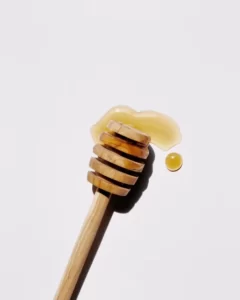Table of Contents
- Introduction
- Antibacterial and Antiviral Properties
- Antioxidant and Anti-inflammatory Properties
- Anticancer Effects
- Physicochemical Characteristics of Manuka Honey
- Diastase Activity (DN) and HMF Content
- Linking DN and HMF Content with Melissopalynological Analysis
- Authenticity of Manuka Honey
- Conclusion
Introduction
Manuka honey, derived from the New Zealand manuka tree (Leptospermum scoparium), is renowned for its distinctive taste and aroma. It has gained significant recognition in modern medicine for its antibacterial, antiviral, and antibiotic properties. This article aims to provide a comprehensive review of the medicinal properties of manuka honey, with a focus on its antiviral capabilities.
Antibacterial and Antiviral Properties
Manuka honey has demonstrated potent antibacterial activity against various strains, including Pseudomonas aeruginosa and Staphylococcus aureus, which are responsible for sinus inflammation. It has also exhibited antiviral effects against Varicella zoster, the virus causing chickenpox and shingles. Studies have shown that manuka honey can enhance the effectiveness of antibiotics against wound pathogens. Additionally, it promotes the growth of beneficial probiotics like Lactobacillus reuteri and Lactobacillus rhamnosus.
Antioxidant and Anti-inflammatory Properties
Manuka honey is rich in bioactive compounds such as phenols, flavonoids, and enzymes, which contribute to its strong antioxidant and anti-inflammatory properties. These properties make it effective in treating chronic ulcers and topical clinical inflammation.
Anticancer Effects
Research has also highlighted the potential anticancer effects of manuka honey. It has shown cytotoxic influence on various cancer cell lines, including lung, breast, colon, and metastatic cancer cells. It has also exhibited anticancer activity against murine melanoma, colorectal carcinoma, and human hepatocarcinoma.
Physicochemical Characteristics of Manuka Honey
While the medicinal properties of manuka honey are well-documented, limited information is available regarding its physicochemical characteristics. The European Union has established regulations to ensure the quality, authenticity, and safety of honey. Parameters such as moisture content, reducing sugars content, sucrose content, water-insoluble solids content, ash content, acidity, diastase activity, hydroxymethylfurfural (HMF) content, and electrical conductivity are crucial for honey quality control.
Diastase Activity (DN) and HMF Content
Two important physicochemical parameters for assessing honey quality are diastase activity (DN) and HMF content. Diastase, also known as α-amylase, is an enzyme present in honey and serves as an indicator of freshness and proper processing. The HMF content indicates the quality and authenticity of honey, as high levels can be a result of adulteration with sugar additives.
Linking DN and HMF Content with Melissopalynological Analysis
Most studies on DN and HMF content in manuka honey have not utilized melissopalynological analysis. Only a few studies have combined these methods, but the results are often presented without statistical analysis. One study found that manuka honey with 75.8% L. scoparium pollen grains had a DN of 19.03 (Schade units) and an HMF content of 16.42 mg/kg. Another study reported that manuka honey with approximately 31% and 51% L. scoparium pollen content had diastase activities of 7.2 and 9.1 Schade, respectively, and HMF amounts of 27.9 and 33.5 mg/kg, respectively.
Authenticity of Manuka Honey
It is important to note that for honey to be called manuka honey, it should contain at least 70% manuka pollen grains. However, some studies did not provide the percentage composition of pollen grains in their tested honey samples, raising doubts about their authenticity.
Conclusion
Manuka honey possesses remarkable medicinal properties, particularly as an antibacterial, antiviral, and antibiotic agent. Its unique physicochemical characteristics, such as diastase activity and HMF content, are crucial for quality control. Further research linking these parameters with melissopalynological analysis is necessary to ensure the authenticity of manuka honey. With its diverse range of medicinal properties, manuka honey continues to be a valuable resource in modern medicine.



